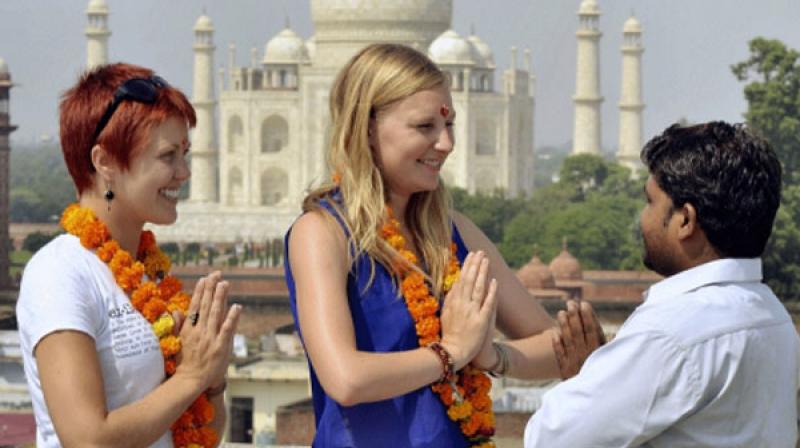Can you think of a country that is rich in natural beauty and history but has not been able to prioritise tourism? India is an example.
In 2018, just about 10 million foreign tourists arrived in India. In 2015, the number was 8 million. Compare this with other Asian giants. According to reports, China recorded 30.54 million foreign visitors in 2018.
Thailand, a country which is about six times smaller than India, received over 38 million tourists. The industry accounted for about one fifth of the country’s GDP. Malaysia, despite registering a 3% drop in the number of inbound tourists, received about 26 million tourists in 2018.
These numbers speak volumes.
At a time when India is battling economic slowdown leading to job losses and shrinking investments, it needs to focus more on developing the tourism sector. This would mean intertwining the transport sector comprising roads, aviation, railways with hospitality – hotels and food and beverages.
Prime Minister Narendra Modi, who celebrated his 69th birthday on Tuesday said that the 11 month old Statue of Unity in Gujarat has attracted an average of about 8,500 tourists per day.
However, this year has brought little cheer to the tourism industry. Political uncertainty has risen since the Pulwama attack in February, which killed over 40 Central Reserve Police Force personnel. Tension between India and Pakistan has been mounting since then. However, bilateral relations worsened after August 5, when India abrogated Article 370 and bifurcated Jammu and Kashmir into two union territories — Jammu and Kashmir with an assembly and Ladakh without one. Since August 5, the Kashmir Valley has been shut for visitors and blacking out of information by the government has further drawn widespread criticism from across the globe.
Not just that. One must also remember that the sudden demonetisation of high value currency notes in one stroke and the subsequent implementation of the Goods and Services Tax which left many confused in the initial phase have also had a role to play in dampening the sector. The GST rate applicable on luxury hotels with tariffs of over Rs 7,500 — categorised as “sin goods” is 28%.
These decisions, some of which have been sudden and implemented without any well thought out strategy, have only made things worse.
Countries such as Thailand, Malaysia and Sri Lanka have extremely competitive rates and India loses not only foreign tourists but even domestic tourists have preferred opting for international destinations because of their pricing.
Besides, a poll by global experts ranked India as one of the most dangerous countries for women. Reports suggested that crimes against women have significantly risen.
An industry insider, wishing anonymity said that such reports have dented the image of India. “Incredible India” – the campaign aimed at promoting tourism in India was launched in 2002. It has remained just a campaign.
According to India Brand Equity Foundation, the travel and tourism sector in India accounted for 8% of total employment in 2017, providing jobs to about 41.6 million people. This is one sector, which not only provides direct employment to people but has the potential to generate thousands of indirect jobs especially for those in the unorganised sector.
While the Narendra Modi government has underlined the need to boost this sector and worked towards easing issuance of visa, it has to do much more.
India and its policy makers must understand the real issues that plague the sector. The government has indeed reduced visa fees while facilitating e-visas but it needs to look beyond.
Safety for women across the country, stability and certainty in political moves besides improvement of tourism infrastructure will be critical. And it goes without saying that pricing is one area that needs immediate attention. After all, in today’s day and age, staying in a luxury hotel cannot be perceived as “sin”. Taxes have to be brought down.

